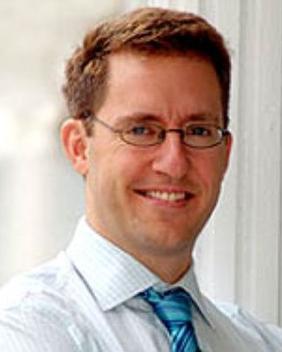Well, this is a very nice surprise. It looks like my current research project, “Who Should Pay for Progress?”, has been selected as the first presentation of the opening plenary session of the 14th Annual Intellectual Property Scholars Conference at UC Berkeley in two weeks. IPSC is the largest annual gathering of the intellectual property law academy, with over 150 scholars from all over the world presenting this year. As in past years, the organizers seem to have reserved the six plenary spots for relatively junior scholars–one of the more generous practices of an unusually generous scholarly community. Obviously I’m extremely grateful to the conference organizers for selecting my project; I’ll do my best not to disappoint.
July 2014
Remembering Dan Markel
Dan Markel was killed yesterday. Dan was a distinguished young law professor at Florida State University, and founder of PrawfsBlawg, one of the first and most successful group law professor blogs (his blogging colleagues have posted a heart-rending notice of his death). Everyone I know in the very small world of legal academia seemed to know and like Dan. I knew him, and I liked him. But frankly, I didn’t know him as well as I should have.
We were facebook friends; we exchanged likes on posts about our professional milestones and on photos of each other’s children, we sent one another birthday greetings (his always came with a “happy bam bizzle”). I did a stint guest-posting on Prawfs a couple of years ago, and Dan’s warmth and gratitude was palpable–over email. But we worked in different fields–he in criminal law, I in intellectual property–and never found ourselves at the same conferences or workshops. We never worked on the same faculty. So we never really formed the kind of personal relationship so many of my friends and colleagues are now reminiscing over in their grief.
I always figured I’d get the chance to get to know Dan better in person someday–we were both relatively young; he often found himself in New York; we both had long careers ahead of us, or so I thought. Since hearing about his death, I’ve been trying to wrap my head around the notion that this someday isn’t coming, and everything I’m ever going to know about Dan is already in the world, somewhere, fading. I’ve spent the past few hours trying to gather some of these rosebuds, and it breaks my heart.
I never realized how much my own professional life has been lived in Dan’s shadow, as if I’ve always been walking two steps behind him. We were, briefly, contemporaries in law school; he completed his service on the Harvard Law Review just as mine was starting. When I decided I wanted to be a law professor, I took advice from Dan’s blog, not realizing he had founded it less than two years earlier (shortly before he started his academic career). He had two young sons, his “bears,” each only a few months older than my two boys–tonight I can’t think more than a few seconds about this without weeping or trembling. Finally, he spent the past decade trying to build and defend a theory of his field that depended not on detached calculation of cause and effect, cost and consequence, but on a fundamentally moral sense of what we as a democratic community of equals owe to one another, and how we should go about trying to fulfill those obligations. It’s only recently occurred to me that my career is shaping up to be about the same thing.
Because I never really got to know Dan personally, all I’m ever going to have to remember of him is his undeniable warmth and the ideas he left behind in his writing. And his ideas resonate deeply for me, though I suspect he and I came to our intellectual commitments by somewhat different paths. Dan and I were both raised in the Jewish faith. He embraced and lived that faith; I, ultimately, rejected it in favor of a more secular humanism. Whatever the sources of our intellectual commitments, though, we each came to believe strongly in equality, in democratic solidarity, and in the dignity of moral agents. Perhaps most importantly, we each came to believe that these values are something we owe to one another as individuals, but practice together as a community. The difference between us is that Dan actually built a community around himself that reflects these values, and tonight as I listen to that community mourn in disbelief, I’m painfully in awe of the achievement. If I am still trying feebly to interpret the world, Dan in his too-brief life really did change it. I wish I had done more to help him.
Platforms, Interoperability, and Academic Workflow
One of the things I do to feel productive (read: procrastinate) during periods of writer’s block is try to improve my workflow. (Another is blogging, clearly.) This largely entails seeking out and tinkering with various software tools to increase the usefulness and accessibility of the research materials I use to write and teach. An e-library of hundreds (thousands?) of articles and books doesn’t just organize itself, you know. Plus, highlighting and annotating on my tablet is far easier and more flexible than reading on a laptop. And of course, I want to make sure I avoid duplicating or losing my research work no matter what device I’m using or where I’m using it, so I need good cloud storage/backup and synchronization tools too. So on days when the words aren’t flowing smoothly from my mind to the page, I often find myself in a situation something like this:
A propos: lately I’ve been tinkering with combinations of software to achieve three distinct goals:
- Organizing my library so old sources and notes are easy to find and new sources are easy to add, wherever I happen to be working on a particular day, without depending on an always-on high-speed Internet connection.
- Linking my library to my tablet for easier reading and annotation of new sources.
- Synchronization and backup storage to propagate any work I do on one device across the entire system and insure it against loss from hardware failures.
And the most satisfactory software solutions I’ve found for these problems are, respectively:
Of course, there’s a problem: two of these solutions will work together tolerably well, but getting all three of them to work together is a tremendous pain. And this appears to be by design. Let me explain.
Peer Review and the Legal Academy
The story making the rounds late last week about a peer-review ring recently busted by academic publisher SAGE was fortuitously timed, as it coincided with the completion of my first referee’s report for a legal academic journal. This led me to some (perhaps unoriginal) reflections on the state of legal scholarship.


